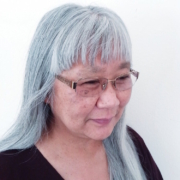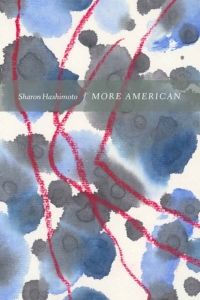Sati Mookherjee
WAYS OF BEING, Sati Mookherjee. MoonPath Press, PO Box 445, Tillamook, OR 97141, 73 pages, $16 paper, http://MoonPathPress.com.
I am writing a “real” review of this book—Mookerjee’s second, and the winner of the 2023 Sally Albiso Award—to be posted at Escape Into Life (EIL) on May 5, 2023, its release date. So consider this a preview, my quick appreciation and shout-out to a stirring collection.
Washington State Book Award winner Sharon Hashimoto says in her cover blurb:
Rhythms, images and juxtapositions in these poems flow like waves filling and
emptying, from past to present to what might be—all while glorying in occlusions. Sati Mookherjee’s lively word play questions our definitions, boundaries around spaces, and leads to fresh and original epiphanies…
“Occlusion,” a fine old word meaning “the blockage or closing of an opening, blood vessel, or hollow organ,” often used in a medical context. In these poems, where Salish Sea, tideflats, “the great lung of bay,” are loved, and desecrated like human bodies, the word is completely appropriate.
I’ll get carried away if I go on (and I want to save that for the review), so I’ll offer this short poem (some are quite long), as a teaser:
Ground
Lay your warm body on the warm earth
and sense how deep the roots go, the rootswe can’t see, think of the acres
of hot black lightless matter under your body.I think the past is a perfectly fine place to live.
Why not be native to it, visit the presentas necessary, a tourist, in transit, on a brief journey.
I can see you’re dying. This terrarium,even with its carefully laid nests of leaves and grass
and twigs, can’t keep you, I don’t want to keep you,go home, back to where you need to be.
—Sati Mookherjee
I’m not sure “Ground” is the right choice—so many of the poems are grounded (deeply) in the present. These are poems of witness. A lifelong resident of the Pacific Northwest, Mookherjee enjoins us to treasure our time here, on earth, adjacent to water.
Ways of Being is available now for presale. Visit MoonPathPress.com for more information. I’ll update the links when the full-length review is posted.

[Update 4.28.23] Mookherjee’s book launch is this coming Sunday in Bellingham, and you can reserve your seat now: https://www.villagebooks.com/event/litlive-sati-mookherkee-043023
My review of Ways of Being can be found here: https://www.escapeintolife.com/book-reviews/book-review-ways-of-being-by-sati-mookherjee/



 collect and treasure family voices, stories of internment and military service, education, and a grandmother peeling onions, or rising from her bath. Every subject is given such poise and dignity, even when buttocks and breasts are “plump bags,” “socks stretched.” It is a book of family, and a book of witness to that family’s particular (and particularly) American history.
collect and treasure family voices, stories of internment and military service, education, and a grandmother peeling onions, or rising from her bath. Every subject is given such poise and dignity, even when buttocks and breasts are “plump bags,” “socks stretched.” It is a book of family, and a book of witness to that family’s particular (and particularly) American history.